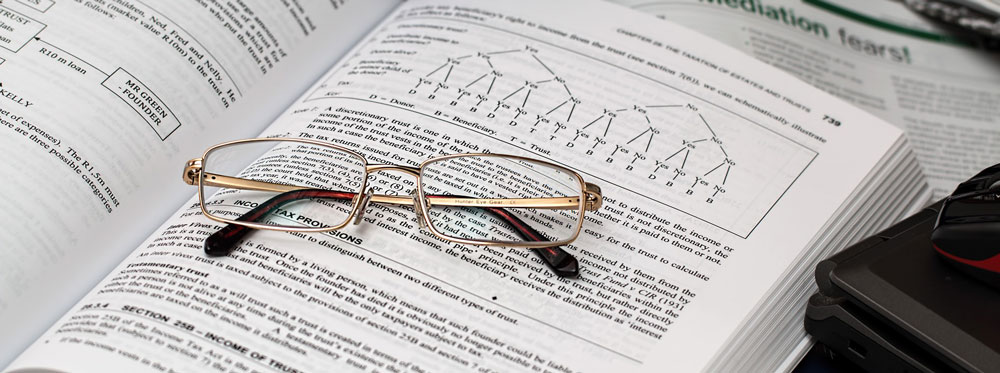
Starting and running a small business can be an exciting and rewarding venture. However, it’s crucial to understand the legal aspects that can impact your company. Business law can be complex, so seeking small business legal advice from a qualified professional is essential. In this article, we will discuss ten important legal issues that small business owners need to be aware of.
1. A Binding Contract Requires a Meeting of the Minds
The foundation of contract law is the “meeting of the minds” principle. Both parties involved in a contract must share a clear understanding of the terms and agree to be bound by them. Ambiguity in contract interpretation can lead to disputes and costly litigation. It is crucial to consult with an attorney to ensure that all parties comprehend and agree to the contract terms.
2. The Validity of Written Contracts vs. Oral Contracts
While oral contracts are technically enforceable, they can be difficult to prove in court. Certain contracts, such as those for real estate sales, sales of goods over $500, or contracts lasting longer than one year, must be written to be considered valid. It is advisable to have written contracts in most situations to avoid potential misunderstandings.
3. Protection of Your Intellectual Property Is Important
Intellectual property, including trademarks, copyrights, and patents, is crucial for safeguarding your business’s unique creative output, branding efforts, and innovations. Consulting with an intellectual property attorney can help you understand and protect your intellectual property rights effectively.
4. Privacy Policies Are Crucial to Protect Customers
In an era where customer privacy is increasingly important, it is essential for businesses to establish clear privacy policies. These policies protect customers’ data and demographic information and ensure compliance with privacy laws. Sharing customer information with other companies requires proper disclosure to customers.
5. Your Small Business Should Adequately Safeguard Data
Protecting your business and customer data is essential in today’s digital landscape. Cybercrime and data breaches can have severe legal and PR consequences. Implementing reliable cybersecurity measures and regularly backing up data are important steps to safeguard valuable information.
6. Consider a Trust for Legal Protection
Sole proprietors may be personally liable for business-related lawsuits. Establishing a trust to own the business can provide added legal protection by separating personal and business assets. Consulting with an attorney can help you determine if setting up a trust is a suitable option for your business.
7. Always Keep Personal Funds and Business Funds Separate
Maintaining separate bank accounts and financial records for personal and business use is crucial. Commingling personal and business funds can lead to legal issues. Separating personal and business finances helps protect your personal assets in case of business-related legal matters.
8. Your Small Business Should Maintain Comprehensive Insurance
Having a comprehensive insurance policy is vital for protecting your business against accidents, natural disasters, data breaches, and other potential claims. Adequate insurance coverage can help mitigate financial risks and ensure business continuity.
9. It’s Usually Better to Negotiate Versus Litigate
Lawsuits can be costly, time-consuming, and uncertain. Exploring alternative dispute resolution methods, such as negotiation, mediation, or arbitration, can often lead to more satisfactory outcomes while saving time and money. Litigation should be considered a last resort.
10. Your Choice of Legal Business Structure Is Important
Selecting the appropriate legal structure for your small business is crucial. While sole proprietorship is the default option, it leaves personal assets vulnerable. Considering more advanced structures like Limited Liability Companies (LLCs) or corporations can provide liability protection for personal assets.
Seeking professional legal advice is the best way to ensure your business operates within the bounds of the law. An attorney can provide personalized guidance based on your specific situation and needs.
FAQs
Q: What is the “meeting of the minds” principle in contract law?
A: In contract law, the “meeting of the minds” principle means that both parties involved in a contract must share a common understanding of the contract terms and agree to be bound by them.
Q: Why is it important to protect intellectual property?
A: Protecting intellectual property, such as trademarks, copyrights, and patents, is crucial for preserving the uniqueness and value of your business’s creative output, branding, and innovations. It also helps prevent others from improperly using or profiting from your intellectual assets.
Q: Why should small businesses maintain comprehensive insurance?
A: Adequate insurance coverage protects small businesses from potential financial losses caused by accidents, natural disasters, data breaches, and other unexpected events. Insurance can help cover the costs of property damage, liability claims, and business interruption, ensuring business continuity.
Conclusion
Understanding the legal aspects of running a small business is essential for its long-term success. By seeking small business legal advice and considering these ten key legal issues, you can better navigate the complex world of business law. Remember, consulting with a qualified attorney is crucial to ensure your business remains compliant with the law and operates smoothly.